(The video version can be found at the bottom of the page.)
Marshall Poe is widely known as the Editor-in-Chief of the New Books Network; his voice greets listeners before each episode. But he’s also an accomplished historian, whose 2023 book The Reality of the My Lai Massacre and the Myth of the Vietnam War explains how the events of March 16, 1968 were generalized by reporters, psychologists, activists, and filmmakers to create a number of myths about the war that now seem unshakable. In many people’s imaginations, the Massacre was a spontaneous event, conducted by war-weary G.I.s who were walking through the jungle and “snapped,” because that’s simply what the war “did” to people. As Poe explains in his book and our conversation, that’s not what happened at all.
I can’t imagine any of Poe’s former teachers or professors writing, “Needs more detail” in his margins. As part of his research, Poe read over 18,000 pages of official reports on the Massacre and the first half of the book is a moment-by-moment account. Lt. Col. Frank Barker believed that the 48th VC Battalion was in My Lai and prepared for a major offensive—but the 48th wasn’t there. Barker’s men were prepared to attack a fortress and found nothing. “They were badly led,” Poe explains, which doesn’t excuse the guilty but helps us better understand the context.
“What you think about the My Lai Massacre is probably wrong. This has something to do with the way it has been presented in popular culture, but also with the way it was presented at the time.” —Marshall Poe
The idea that events like My Lai happened all the time is one of those things that “everyone knows.” But if the war as a whole was “My Lai writ large,” there should have been many more My Lais. So where did this “knowledge” about constant massacres and war crimes come from and how did it take such root in the popular understanding of the war? To answer this, Poe examines the ways that figures such as Bertrand Russell and Robert J. Lifton seized upon the events at My Lai to promulgate the idea that the United States commonly committed atrocities. Through repeated use, a template was created and employed in reporting, publishing, teaching, and filmmaking: according to this template, “The US army, a thoroughly bankrupt institution fighting an immortal war, intentionally organized the massacre and others like it. It was not a matter of a few bad apples; the Establishment, as the New Left repeatedly said, was corrupt. The men were following orders just as Nazi soldiers were following orders at Oradour.” That this template was untrue did not affect its reach.
Poe addresses other myths about Vietnam, such as the idea of it being a guerrilla war as seen in Apocalypse Now. Poe argues that Vietnam was a war of occupation, exactly the kind of war that is—and always has been—almost impossible to win. He confronts the idea that the majority of soldiers were brainwashed like Private Pyle in Full Metal Jacket or returned home to become Robert De Niro in Taxi Driver, Jon Voight in Coming Home, or Christopher Walken in The Deer Hunter. And while Poe states that films like The Deer Hunter are powerful “cautionary tales” that tell us “going to war is going to have all kinds of costs you might not know about,” he argues that, as a whole, the films are not true to the historical record and perpetuate the myths that historians need to challenge. At a 1979 press conference for Apocalypse Now, Francis Ford Coppola stated, “My film is not a movie. My film is not about Vietnam. It is Vietnam. It’s what it was really like.” Poe responds to such a claim by saying that Apocalypse Now is a great film that he’s seen many times, “But … No.”
The myth that, as Oliver Stone suggests in Platoon, that war crimes like My Lai occurred as a matter of course is the basis for the Tom Berenger’s character. But as Poe proves throughout his book, the Army never ordered or condoned the Massacre. Those opposed to the war had a noble goal—stop war—but the question Poe asks is, “How much of the truth are you willing to sacrifice to get there?”
Ultimately, Poe argues that “Americans have now arrived at a universally accepted folk history—a way of talking about the Vietnam War and My Lai Massacre—that does important psychological and social work.” How films about the war contribute to this “work” is discussed in his book and in our conversation.
Here’s the video version of our conversation:
Thanks for reading and listening. I’d be interested to hear what you think.





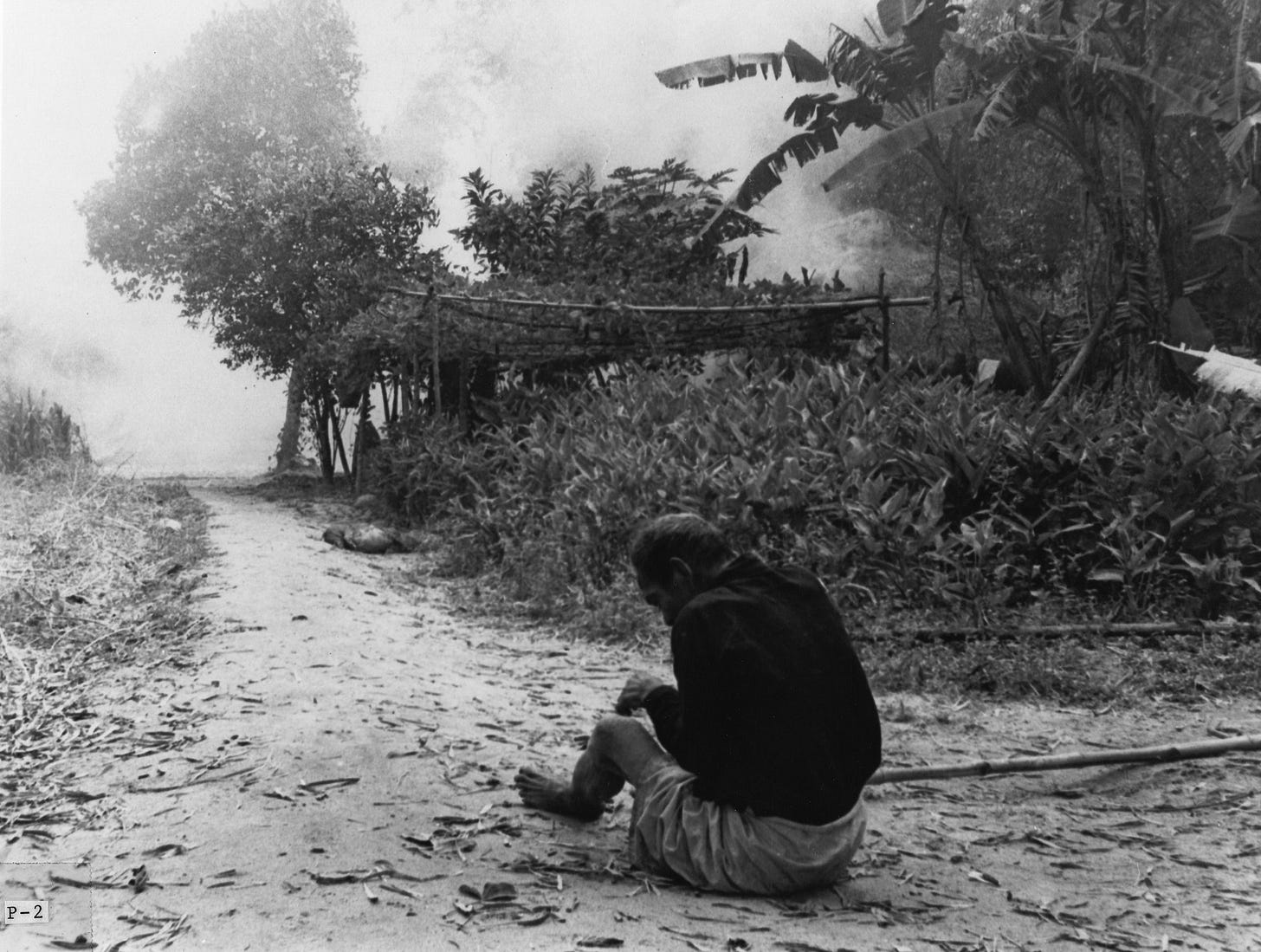

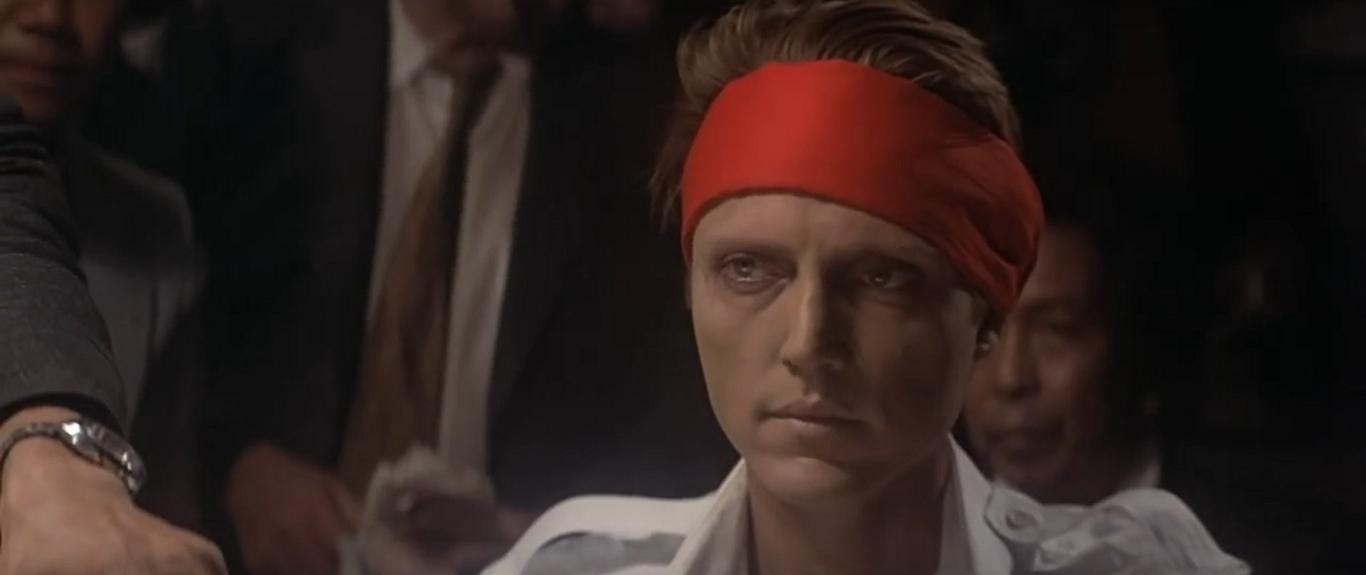
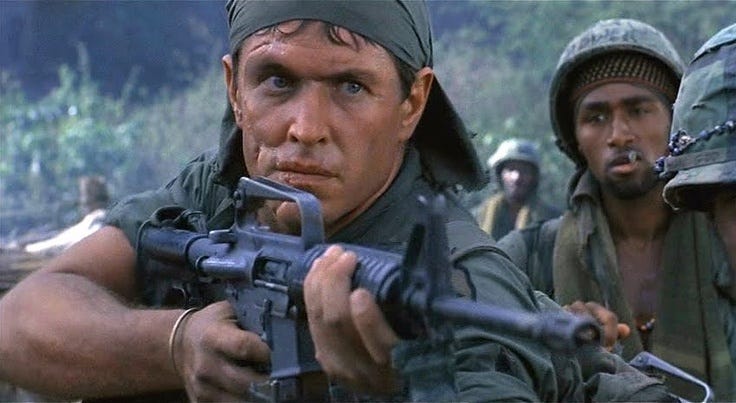


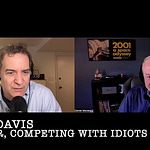

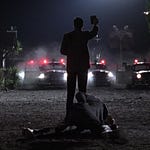


Share this post